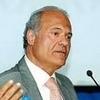IPVS' Panel at 333 Experience discussed strategies to protect the health of Brazil´s pig herd
Published: December 13, 2021
By: http://www.ipvs2022.com/

The dissemination of ASF and the challenges involved in containing its damage were the topics of discussion during the IPVS’ Panel presented online at the 333 Experience Congress, held on November 19th, which brought together people involved in the pig farming.
The panel was chaired by Fernanda Almeida, President of IPVS2022 and Lia Coswig, Director of Biosecurity of IPVS2022, the panel invited Maurício Dutra, a veterinarian with a PhD in epidemiology and extensive experience in the prevention and eradication of infectious diseases, José Manuel Sánchez Vizcaíno, veterinarian, Professor of Animal Health at Universidad Complutense de Madrid (ESP) and Director of OIE´s Reference Lab, and Christian Gortázar, veterinarian and Professor of Animal Health at the Universidad de Castilla-La Mancha (ESP).
The President of IPVS2022 opened the panel talking about Brazil´s representativeness in the global pig industry. Dr. Almeida mentioned that it is not by chance that Brazil occupies the fourth position in the world ranking of pork production and export. The country owes this important position due to the commitment and focus shown by the entire pig industry, which has been working very hard to deliver the best solutions to stay ahead in the market.
Dr. Dutra addressed the current scenario of ASF, adding that this is a very relevant and endless discussion. According to him, among the viral diseases found in the pig industry, ASF is certainly the most challenging. The situation in Asia clearly showed the catastrophic consequences of the virus when it reached the continent. For example, China´s herd size decreased 40%, leading to changes of their biosecurity protocols to ensure that quarantine rules and control measures are strictly followed.
Dr. Dutra emphasized that there is still a long road ahead to control ASF in Asia. On the other hand, the use of live vaccines - most of which are smuggled, has contributed to the development of new virus strains that are much more difficult to identify.
Dr. Vizcaíno agrees that the use of unauthorized vaccines is further aggravating the spread of ASF. Fourteen years after its arrival in Europe, the disease continues to be perceived as a big unknown by the scientific community. We have today a large variety of genotypes derived from the attenuated strains found in these unauthorized vaccines, carrying no guarantees. Dr. Vizcaíno also believes that the vaccine now in development in Spain is taking large strides towards being approved.
Dr. Gortázar gave an overview of the role of wild pigs in ASF. He also addressed the several facets of ASF control. According to him, we have been working on prevention, taking care of the environment where these animals live, correctly disposing of carcasses, and sharing information with the pig industry community. We also encourage sport hunting because it reduces the number of wild animals. While sport hunting is effective before an outbreak, palliative actions such as professional hunting and setting up artificial barriers are needed when there is an epidemic as was the case in South Korea, said Christian.
To make sure Brazil remains ASF-free, the speakers agreed that special attention must be given to the transportation of animals, correct disposal of contaminated carcasses, and the control of flies because the virus may survive up to 110 days in temperatures between 3°C and 4°C and up to one month inside a contaminated stall, as Christian pointed out.
According to Dr. Vizcaíno, the control of food items entering Brazil through its airports must be reinforced. Brazilian tourists returning home may inadvertently bring the ASF virus, which, for example, may be present in processed food. In general, the Brazilian population underestimates the seriousness of food transportation because these items may eventually serve as the gateway to an epidemic into the country.
According to Dr. Dutra, Brazil´s health status is an example to be followed; it is the Brazilian strongest asset.
IPVS2022 - International Pig Veterinary Society Congress
June 21- 24, 2022
Rio de Janeiro/Riocentro Convention & Event
Source
http://www.ipvs2022.com/Related topics:
Mentioned in this news release:
Attuale Comunicação



Show more
Recommend
Comment
Share

Would you like to discuss another topic? Create a new post to engage with experts in the community.














